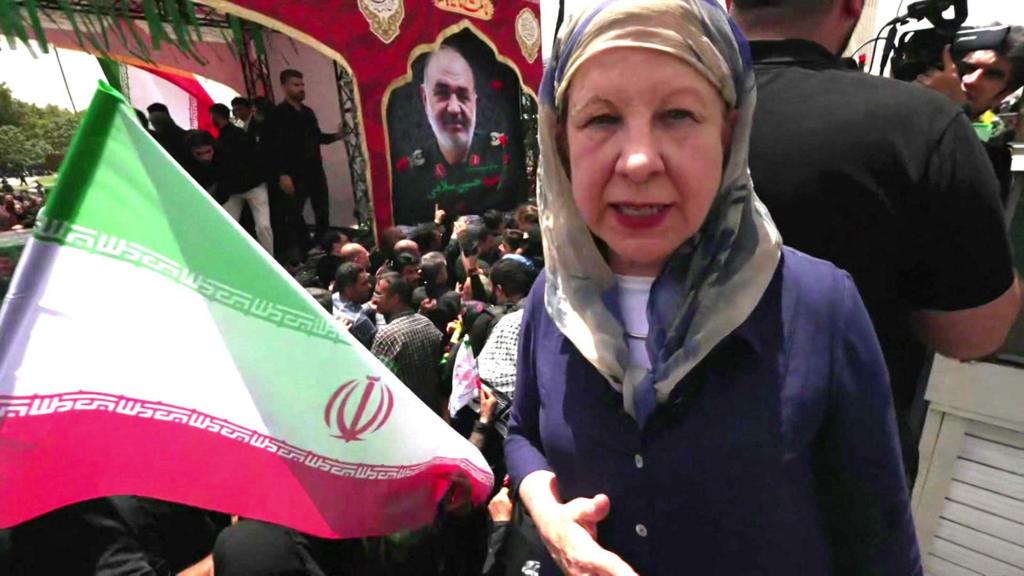Lyse Doucet, the BBC’s Chief International Correspondent, is reporting from Tehran, where a state funeral of significant scale took place on Saturday.
The mass gathering mourned the approximately 60 individuals, including high-ranking military officials and nuclear scientists, who perished during the recent 12-day conflict with Israel.
A ceasefire was implemented earlier this week, bringing an end to the hostilities after direct intervention from the United States, which involved the bombing of key Iranian nuclear facilities.
Please note: Lyse Doucet’s reporting from Iran is contingent upon the agreement that none of her reports will be utilized by the BBC’s Persian service. This restriction, imposed by Iranian authorities, applies uniformly to all international media agencies operating within Iran.
The BBC’s Lucy Williamson is outside Soroka Hospital in Beersheba, in the south of the country, as emergency workers assess the scene.
Israel’s Prime Minister has long warned that Iran is close to developing nuclear weapons. BBC Verify’s Ros Atkins explains what we know about its programme.
Iran’s Fordo nuclear site is one of the most heavily fortified. There’s only one conventional weapon that could destroy it – and only the US is known to have it.
Videos posted on social media show queues for fuel and gridlocked traffic as people try to leave Tehran.
The BBC’s Middle East correspondent Hugo Bachega is in Petah Tikva, where an Iranian missile struck a building overnight.
Five people have been killed and dozens injured, according to Israel’s national emergency service.
Footage from Reuters news agency and The Associated Press shows burning cars after a missile strike in the Israeli city of Haifa.
BBC correspondent Hugo Bachega reports from Bat Yam near Tel Aviv which has been targeted by Iran.
Israel and Iran have continued to attack each other throughout the night
Emergency services in the Israel’s of Bat Yam launch rescue efforts following Iran strike.
Israeli authorities have indicated that this could be the beginning of a prolonged campaign against Iran.
The BBC’s Hugo Bachega reports from Jerusalem as the two sides trade fire.
Iran launched a fresh wave of missiles towards the country on Friday night, vowing to “inflict heavy blows”.
Israel’s wave of strikes against Iran, which began on Thursday night, has continued through today. BBC Verify’s Merlyn Thomas has been examining footage of the attacks and the damage they’ve caused.
Israel’s prime minister said Iran’s nuclear capability posed a “clear and present danger”, while Iran’s president promised a “powerful” response.
The BBC’s Hugo Bachega reports from Jerusalem, after Israel launched overnight strikes against sites across Iran.
Israeli Prime Minister Benjamin Netanyahu said in a video statement that Israel has launched Operation Rising Lion.
Israel says it has carried out strikes on Iran’s nuclear programme, with blasts and fires seen in Tehran and elsewhere.
Palestinians can be seen climbing over fences and running to get humanitarian aid in the footage.
The BBC heard from dozens of former officials about their role enforcing the brutality of the Assad regime.

